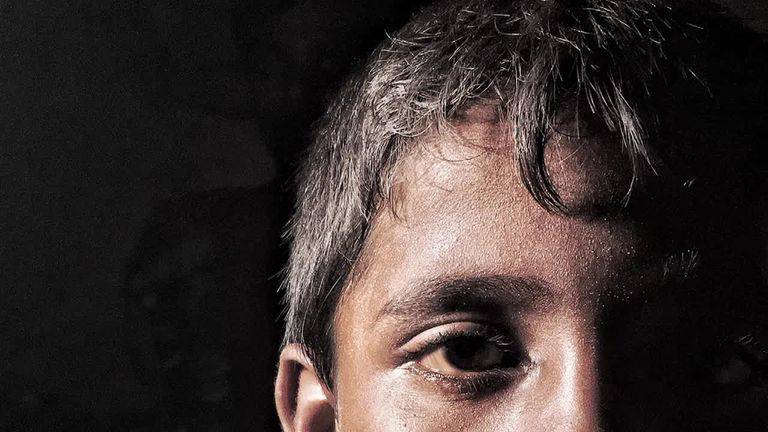UK 'shirking responsibility' on Rohingya crisis
Those behind the humanitarian crisis are being allowed to get away with it - and it sets a terrifying precedent for the world.
Tuesday 14 November 2017 15:09, UK
In a direct response to Sky's coverage of the Rohingyas' plight, the Prime Minister is demanding Myanmar authorities halt the violence and ensure access to Rakhine state.
Aides say Theresa May is "appalled by the inhumane violence that has taken place in Rakhine State" and regards the situation unfolding there as "a major humanitarian crisis that has been created by the Burmese (Myanmar) military".
Their treatment of the Rohingya "looks like ethnic cleansing", Downing Street said.
But this response does not go far enough for some observers who want action from world powers to stop the Burmese military.
:: Myanmar army general in charge of Rakhine state 'replaced'
"If you call it ethnic cleansing it lets governments off the hook," international law expert Professor Penny Green, from Queen Mary University of London, told Sky News.
This claim is based on the fact that ethnic cleansing has no meaning under international law and therefore does not oblige governments to act.
The concept of genocide, however, is defined in conventions signed by the UK government and requires action.
Professor Green and colleague Doctor Tom MacManus have been writing to the British Government since 2014 supplying evidence first that a genocide was being planned and then that it was under way in Myanmar's Rakhine state.
"They're trying to remove the Rohingya, they're trying to destroy them as a group," Dr MacManus told Sky News.
"If you remove the Rohingya from Rakhine state using violence, terror, murder, rape, destruction of property, that is a genocidal act. You are trying to destroy them as a people."
:: Rohingya babies dumped and left to die in Myanmar crisis
The Foreign Office says only an international tribunal or court of law can judge if a genocide is being carried out. Any such tribunal would take years to reach its conclusions.
"I think the government is trying to shirk its responsibilities," says Dr MacManus.
"They are trying to avoid the obligations that the genocide treaty places on them by not calling this what it is. Not calling it genocide."
The Government says it is seeking ways of holding those responsible to account.
Groups like Amnesty International say that, so far, not enough has been done by the international community to deter the Burmese military and other groups from carrying out atrocities
"What we have concluded is that these are crimes against humanity," Amnesty's Laura Haigh told Sky News.
"These are crimes of murder, crimes of rape, forcible transfer of population. They are international crimes and they do need to be held to account and at the moment we're not hearing another about justice and accountability."
Amnesty is gathering satellite imagery cataloguing some of those crimes.
Photographs taken before and after scorched earth operations by the Burmese military and vigilantes show the same picture in village after village. Rohingya homes are all burned to the ground, leaving brown blotches on the images. Their former non-Rohyinga neighbours' homes are left untouched.
The systematic torching of villages has been accompanied by a programme of terrorising the Rohingya.
Mass rapes and killings have been carried out by Burmese soldiers and more shadowy vigilante groups.
Amnesty is compiling lists and descriptions of the military units involved, their insignia, uniforms and where possible the names of commanding officers.
Bringing the perpetrators to justice is important but the key question now has to be how to stop the atrocities happening.
Azeem Ibrahim, author of Inside Myanmar's Hidden Genocide, says the outside world is turning a blind eye to ethnic cleansing in the mistaken belief that the alternative is a return to military rule.
"Western leaders simply do not want to put too much pressure on Myanmar's fragile democracy so what they're essentially saying is we're willing to tolerate ethnic cleansing and genocide to protect this very fragile democracy, which is a contradiction in terms."
Burmese operations against the Rohingya are slowing down, observers say. With most Rohingya killed or expelled, they are close to achieving their ends.
Its perpetrators have so far got away with it. That sets a terrifying precedent.
Myanmar has many more minorities it may now seek to eradicate. Other nations may be emboldened to do the same with theirs. And Muslims the world over will wonder why this time ethnic cleansing and genocide, whatever you call it, was able to happen and no one has been held to account.









